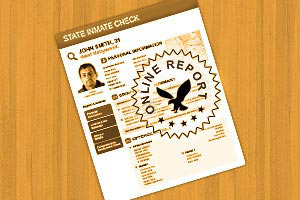California Public Records
The California State Records website provides every Californian with tools to access public records. This ensures California residents are able to use their right to access and obtain public records in accordance with the California Public Records Act, which presumes all government information and records are available to the public.
The goal of this website is to ensure all members of the general public can use their right to access California state public records. This can be done without requiring a reason for accessing such information or providing personal information unless the requested record is confidential by law or court decision.
Criminal records, court records, and vital records are all present on California State Records. This includes over 350 million transparent public records.
Are California Records Public?
Yes. A large majority of government-generated records fall under the umbrella of public records. The California Public Records Act (CPRA) broadly defines public records to include any non-confidential information generated, owned, stored, or used by any local or state agency during the conduct of public business.
The California Public Records Act specifies that "every person has a right" to obtain public records in California or conduct background checks (searches to retrieve available public information about a person) - regardless of their state of residence (Cal. Govt. Code § 6253).
Requesters have the fundamental right to access, inspect, or make copies of any non-confidential information maintained by state and local government agencies (Cal. Govt. Code § 6250). This includes firms, partnerships, corporations, and limited liability companies. Nevertheless, California law or court order may restrict access to some records. For instance, Section 290.46 of the state's penal code restricts certain registered sex offender information from being accessed via the public sex offender website.
What is Considered Public Information in California?
Examples of California public records include:
- Public court records
- Public criminal records
- Public arrest records
- Public bankruptcy records
- Public birth records
- Public California death records
- Public inmate records
- Public sex offender information
- Public property records including deeds, mortgages and more records typically pertaining to real estate purchase, ownership and rental agreement.
- Public California divorce records
Alongside typed documents, public records may also exist as photographs, photocopies, handwritten notes, electronic files, and digital recordings.
The California Public Records Act preserves access to almost all public records. Consequently, California residents can perform free public data searches through custodians or make copies of open records by submitting public records act requests.
Note: Public record information do not include materials that are the personal property of the record custodian. For instance, the private emails of a court clerk do not constitute a public record. In most cases, the CPRA also does not cover preliminary computations, notes, and drafts.
How Do I Find Public Records in California?
In compliance with the CPRA, record custodians and agencies must provide prompt access to public record information upon receiving a public records request. In most cases, residents can obtain copies of a record by following several quick steps.
1. Decide on the type of information to request
To submit a public record request in California, record seekers must first identify the type of information required. Is it a single-page document or records containing hundreds of pages? It's also important to consider the period covered by the search. California statutes state record keepers may honor any request that "reasonably describes an identifiable record or records" (Cal. Gov't Code § 6253(b)). The law provides that record custodians can rightly deny any public record request that is "overly broad" or "overly vague". Record seekers can prevent this by providing enough information to assist with searching and retrieving the sought record, such as a case number (for court records) or the parties' names.
2. Contact the Agency Holding the Record
Different agencies manage specific records. For instance, a county sheriff's department processes requests for inmate records, the superior courts disseminate divorce records, and the county clerk/recorder and California Department of Public Health receive vital records requests. Record seekers will need to identify and contact the proper agency that maintains the record or the department within the agency that deals with public coordination and communication.
NB: To figure out the record custodian for more records, visit the official website of judicial district of interest and navigate to the page of the relevant official.
3. Create a Written Request
Although it's possible to obtain copies of a record without a written request, most agencies recommend that record seekers submit their requests in writing. Some departments even provide a public request form to ease the process. A written request creates a paper trail and reduces the risk of confusion. Information that should be included in a public records request includes:
- A clear description of the record
- The type of record
- The full name of the requester
- The requester's contact details
- A date range for the request
- Any other information that may assist the search for public record information
- The preferred method for delivery
4. Review and Submit Request
After verifying the information, requesters can submit their requests using different mediums. Requesters may opt to send their request to an official email address or fax number. Some agencies provide an online records request page, while others maintain a public desk where users can physically submit a request. California residents may also be able to request and obtain records via mail - although this method typically takes the longest. Some records may be available at no cost. Others might require a fee. Custodians typically charge a small fee for photocopying or printing copies of a record for seekers - anywhere ranging from $0.10 to $0.20. Some agencies may also charge a fee for searches that require data extraction.
How Do I Look Up Public Records for Free in California?
Finding free public records in California will depend on the type of record and the agency in charge of the document. One option for obtaining free public records in California is to request a physical inspection. Some government agencies, such as police departments and California county clerk/recorder's offices, maintain lobbies and public access terminals where individuals can inspect a record during regular business hours.
Another option is to request electronic copies instead of physical files. Residents may also be able to conduct free public records searches online. For instance, some counties maintain a free online inmate locator tool that the public can use to search for inmate information. California also maintains a public sex offender website that provides free information on the status of medium- and high-risk sex offenders. It contains data extracted from the California Sex and Arson Registry. Visitors can search for sex offenders using a first and last name. Users can also expand searches to reveal offenders within a specific map zone using a street number, street name, zip code, or radius.




